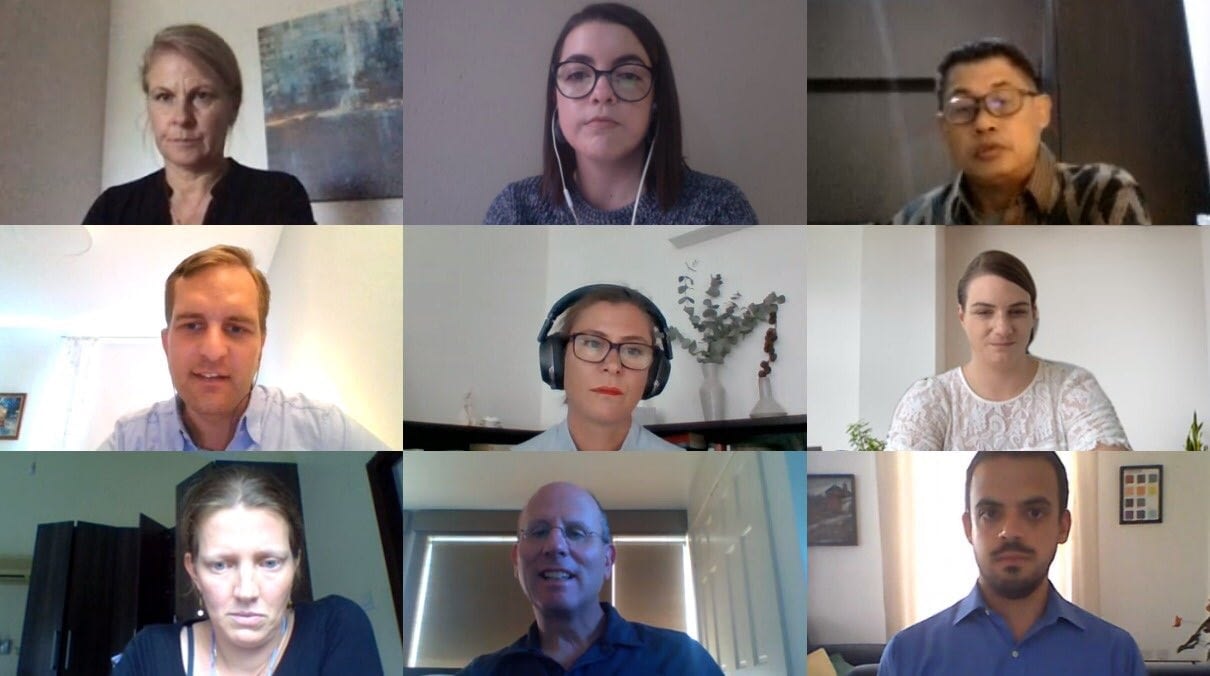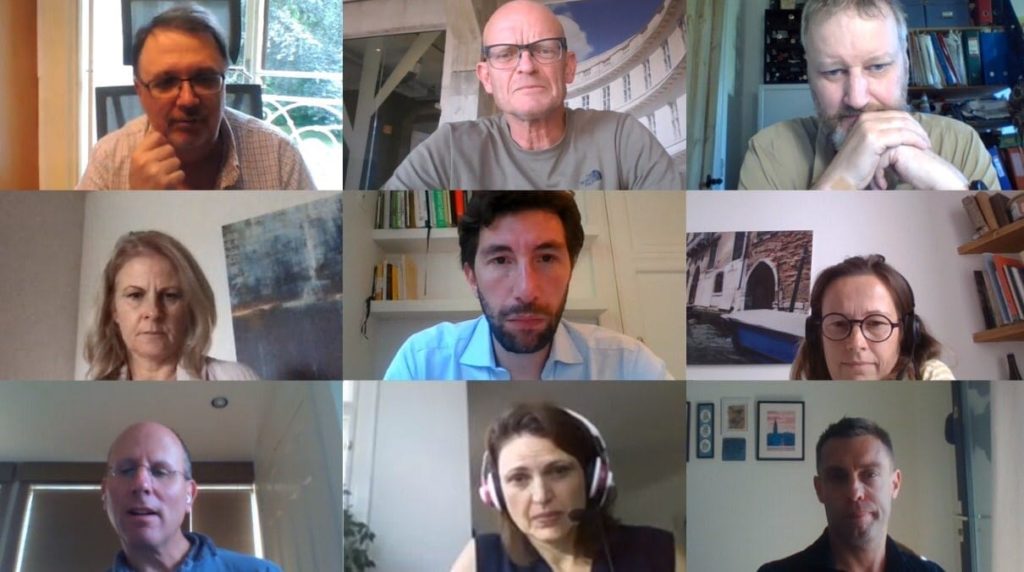
In June 2020, the IIJ convened five online consultations for 59 practitioners from 15 countries with experience in designing and implementing multi-actor programmes for preventing and countering violent extremism (P/CVE) with a particular focus on referral mechanisms.
Multi-sector and multi-level collaboration within each country has increasingly been recognised by policy-makers and practitioners as an important tool to identify, intervene, redirect and support individuals who are assessed to be ‘vulnerable to’, ‘at risk of’ or already on the path to radicalisation to violent extremism and/or have expressed interest in engaging in terrorist activity, but have not committed crimes.
One of these forms of collaboration are so called ‘referral mechanisms’, which involve one or more local actors, including social and health workers, religious mentors, family members and civil society organisations (CSOs). Such mechanisms enable the mobilisation of stakeholders who may be better placed to deliver an effective and preventative intervention because they have a particular competence, expertise, perceived credibility or legitimacy not possessed by local law enforcement authorities. These stakeholders may help bridge the gap where a case of concern has been identified but law enforcement action is not appropriate.
Acknowledging the effectiveness of these programmes, the IIJ, with support from the European Union, is working on the elaboration and piloting of a first-of-its-kind curriculum to support the development and implementation of multi-actor intervention platforms for P/CVE around the world.
The first activity under this project was an expert workshop convened in Copenhagen, Denmark, on 26 – 27 February 2020. Organised in cooperation with the Danish Centre for Prevention of Extremism, the meeting aimed to identify the key elements of training and other capacity-building components to be included in the curriculum.
The inputs collected in Copenhagen informed a draft framework for the curriculum, which addressed issues such as: a) legal and policy frameworks; b) roles and responsibilities; c) information sharing and other collaboration; d) assessing risks, needs and capacities; e) designing effective interventions; f) building trust and mitigating stigma; g) sustainability; and h) monitoring and evaluation.
The purpose of the online consultations held in June 2020 was to present and discuss the draft, identify its strengths and weaknesses, and suggest ways of improving its content and structure.
Each of the five two-and-a-half-hour meetings brought together a different group of subject-matter experts, who shared their views on the proposed theory of change, the key messages and methodology for the course and offered recommendations on the appropriate participants for the training.
With the feedback gathered, the IIJ has updated the draft framework and is currently working on expanding it into a training curriculum, which will be piloted in the last quarter of 2020 in at least two countries before being updated, finalised and published.
For more information on these Consultations or the IIJ Multi-Actor P/CVE Interventions Workstream, please contact Programme Manager Adrián Carbajo.

